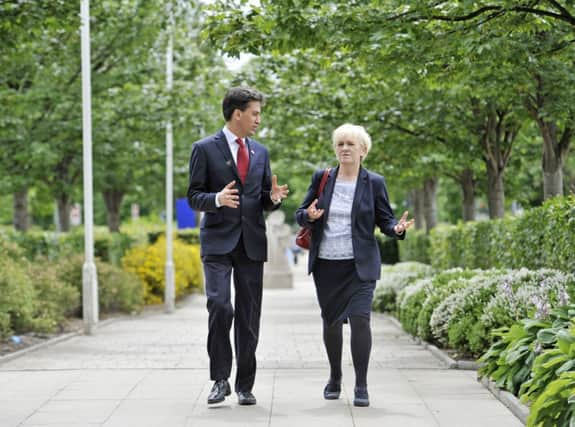John Curtice: Scottish Labour on edge of black hole


But what was missing was clear evidence from a Scotland-only poll that the SNP had surged ahead of Labour. True, the last such exercise, undertaken at the end of September by Panelbase for the SNP themselves, did put the Nationalists two points ahead. But many a poll taken during the referendum had uncovered a similar result.
Moreover, even though it would represent a 12-point swing from Labour since 2010, a two-point SNP lead would probably yield the party relatively little in terms of seats. The SNP did not come a close second to Labour in a single seat in 2010. Consequently, in most constituencies the party needs a double-digit swing next May just to get within sight of the Labour incumbent. Even a 12-point swing would see no more than seven seats switch from Labour to the SNP, and then in most cases only just.
Advertisement
Hide AdAdvertisement
Hide AdHowever, the latest Ipsos Mori poll dispels any remaining doubt that the SNP is enjoying a post-referendum surge in Westminster voting intention and that, consequently, Labour’s dominance of Scottish representation at Westminster, and thus Ed Miliband’s prospects of being the next prime minister, are under serious threat.
Indeed, rather than suggesting that the 40 per cent or so SNP support in recent British polls might be an overestimate, the latest poll puts SNP support even higher, at a record 52 per cent.
Labour, meanwhile, is left trailing on just 23 per cent, nearly 30 points behind –enough to see almost every single seat in Scotland fall into the SNP’s hands.
Of course, exceptional poll results should always be regarded with caution. But even so, it is clear that those figures for Scotland in recent British polls cannot be ignored.
Labour is standing very uncomfortably on the edge of a very deep black hole.
l John Curtice is professor of politics at Strathclyde University